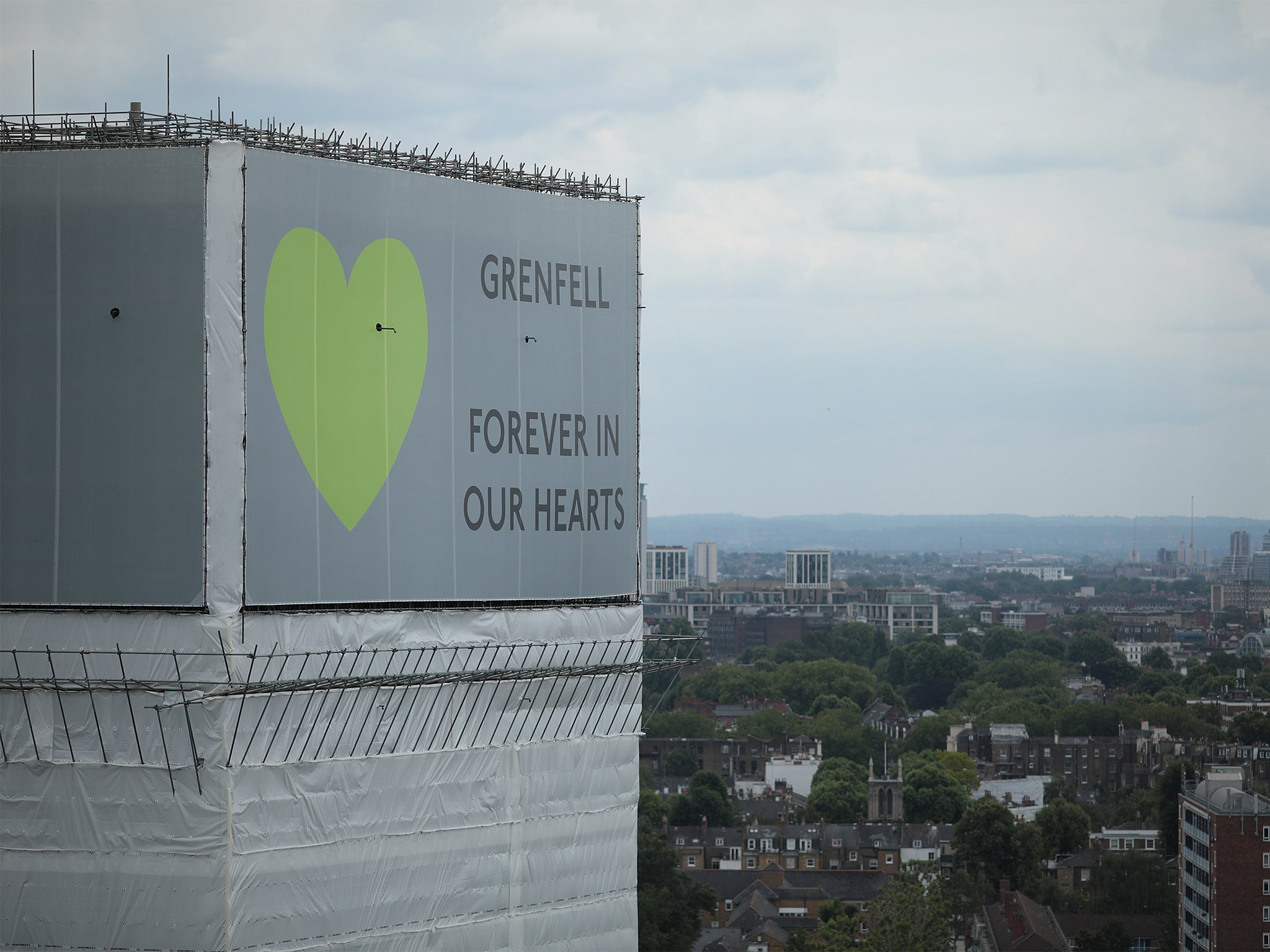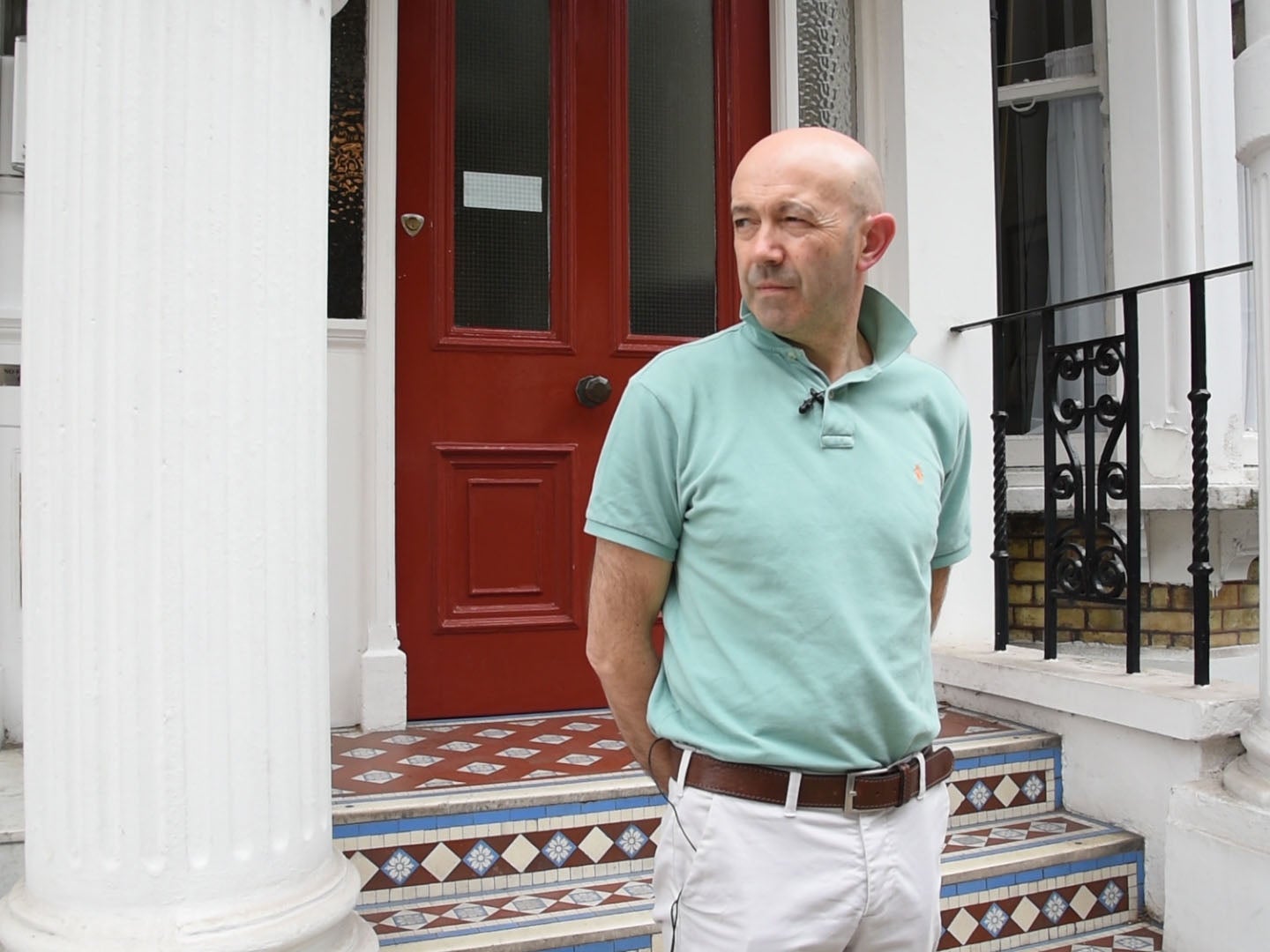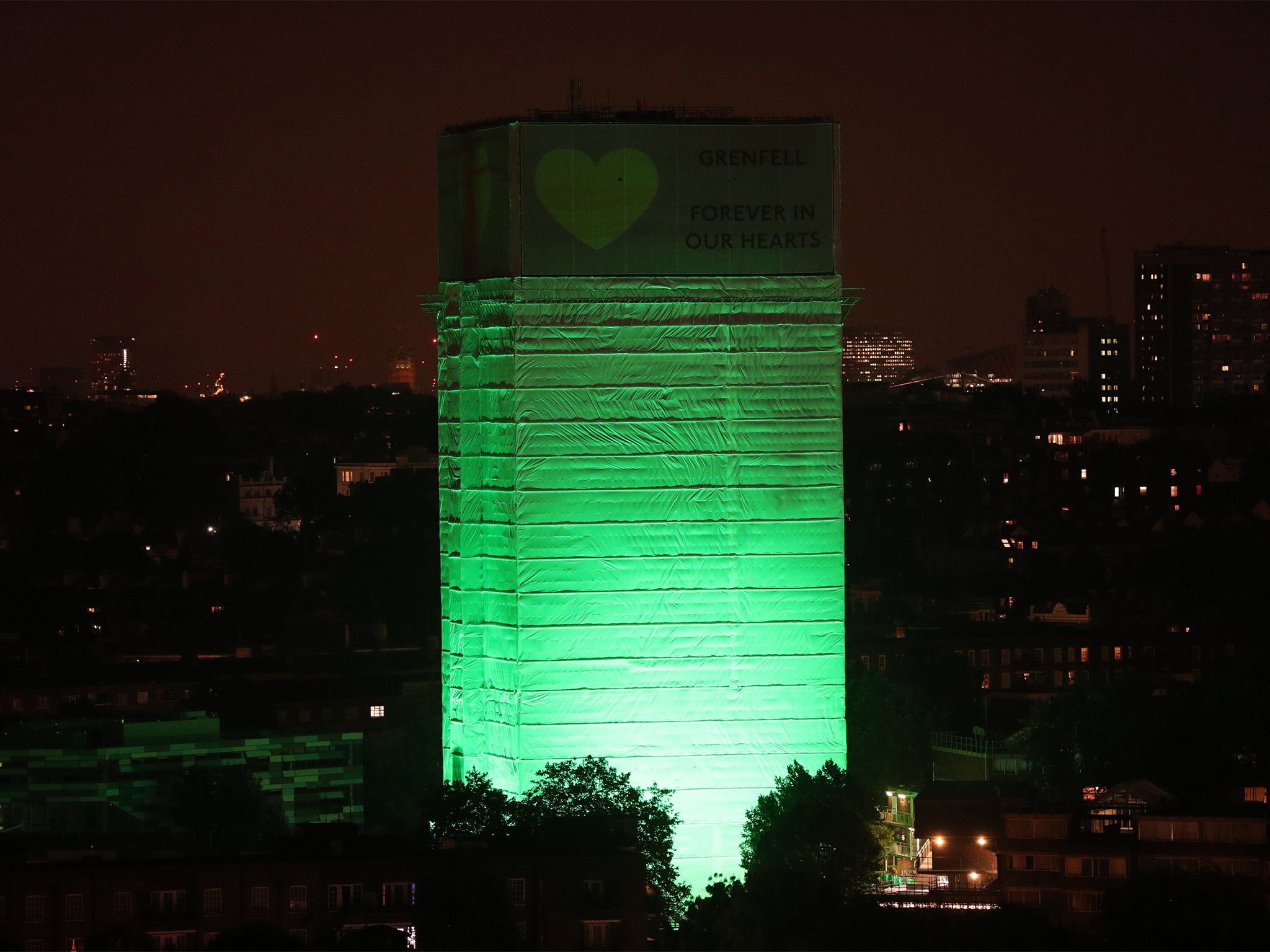Grenfell Tower: Almost 100 families still without own home this Christmas, 18 months after fire
Exclusive: Council criticised for ‘painfully slow’ pace of rehousing residents

Your support helps us to tell the story
From reproductive rights to climate change to Big Tech, The Independent is on the ground when the story is developing. Whether it's investigating the financials of Elon Musk's pro-Trump PAC or producing our latest documentary, 'The A Word', which shines a light on the American women fighting for reproductive rights, we know how important it is to parse out the facts from the messaging.
At such a critical moment in US history, we need reporters on the ground. Your donation allows us to keep sending journalists to speak to both sides of the story.
The Independent is trusted by Americans across the entire political spectrum. And unlike many other quality news outlets, we choose not to lock Americans out of our reporting and analysis with paywalls. We believe quality journalism should be available to everyone, paid for by those who can afford it.
Your support makes all the difference.Almost 100 families made homeless by the fire at Grenfell Tower will still be without a home of their own this Christmas – 18 months on from the tragedy.
There are 96 households stuck living in temporary flats, hotels, serviced apartments or staying with friends, according to the latest figures from the Kensington and Chelsea Council.
The total number left without a permanent home includes 36 households from Grenfell, and another 60 households evacuated from the wider Lancaster West estate.
In the immediate aftermath of the June 2017 fire, prime minister Theresa May promised survivors they would be rehoused within three weeks. In November 2017, housing minister Alok Sharma said affected residents would be provided with new homes within a year.
Yet scores of housing cases remain unresolved, and evacuated residents have told The Independent about the stress, instability and uncertainty they have experienced in the 18 months since the fire.
Antonio Roncolato, 58, lived on the 10th floor of Grenfell and was one of the last survivors to escape the tower. He spent almost eight months in a hotel before being moved to a temporary flat. He is finally expecting to move into a low-rise council flat of his own in Kensington by the end of January 2019.
“It’s not before Christmas unfortunately, but at least I’m getting the housing I needed,” he said. “Like many other people, it took much longer than expected. It’s been a long time. I thought it might take a year, at the maximum.
“I understand it’s been difficult to accommodate so many people with different needs, but what the (council) could have better done is listen to the residents.
“If they had understood what people needed, they could have avoided some of the problems. The new flat I’m moving to might last for the rest of my life, so I wanted it to be the right one rather than move around unsuitable places, like what happened to other people.”

Ibtisam Alfawaz, 42, and her five children have been moved 14 times since they were evacuated from Hurstway Walk next to the tower last June. The family has been through a series of hotels and temporary flats, all of which Ms Alfawaz and her children have found unsuitable.
She said one flat they were provided last year contained damp, mould and a mice infestation. Earlier this year, they were asked to leave another temporary flat because the council could no longer afford the high rent charged by the private landlord.
“We just want to have a settled home,” she told The Independent. “If you give me something suitable, I will make it a home. I thought my housing would be sorted out last year, when I still trusted the council. Nobody thought about how to help us feel settled again in a home of our own.”
Currently living in a serviced apartment, Ms Alfawaz has accepted an offer of a temporary flat in Hammersmith and expects to move there in January. The former retail worker has struggled with mental health issues since the fire and hasn’t been able to work since March this year.
“I still don’t trust [the council] that we won’t be moved again,” she said. “I wouldn’t wish this experience on my worst enemy. It’s been very difficult. I want to wake up and realise it’s all been a bad dream.”
North Kensington Law Centre has provided legal assistance Ms Alfawaz and dozens of other Grenfell residents. Spike Western, paralegal at the centre, said time had been wasted offering or moving residents into unsuitable accommodation, such as flats in high-rise tower blocks.
Grenfell survivors and their legal advocates have previously told The Independent about being offered “rabbit hutch” flats which lack basic facilities such as living rooms.
“All our clients are suffering from PTSD and some have developed serious mental illnesses such as depression or anxiety disorder,” said Mr Western. “These mental health issues have been caused by the fire, but in many cases has been exacerbated by the housing problems.
“Mental illnesses are treatable but the treatment requires a safe and stable environment in which to recover,” he added. “Unfortunately, many households have not had a stable place to call home.”
Kensington and Chelsea Council spent over £235m acquiring 307 homes in the borough earlier this year. The boost in social housing supply has allowed council staff to rehouse the majority of the 201 Grenfell households and 129 households from the wider estate made homeless by the fire.
Yet some evacuated residents have particular needs, such as large families or disabilities, which mean the purchased homes have proved unsuitable. Some of the homes are still in need of renovation or adaptation and will not be ready until early 2019.
The council insisted its housing officers were busy trying to provide everyone with “a place they can call home,” but would “not be rushing the last few families to meet artificial deadlines, such as Christmas”.
In a report released earlier this week, the government’s Grenfell Recovery Taskforce criticised the council for the “painfully slow” pace of rehousing residents.
Emma Dent Coad, Labour MP for Kensington, said the local authority had made “avoidable mistakes” and called for an independent commissioner to take over the rehousing process from council chiefs.

“It is simply unacceptable that Kensington and Chelsea Council has continued to fail in the most basic of duties – providing a suitable home for those made homeless,” said Ms Dent Coad. “Frankly some of the stories we hear about how the council treats these people made homeless by the actions of others are shameful.”
Kim Taylor Smith, deputy leader of Kensington and Chelsea council, said: “We welcome the criticism, and positive comments, because it is important to us that we continue to review, continue to improve, and that we deliver.
“We will make mistakes, and we would never shy away from recognising that, and I agree we need to make sure we do the basics right – as we do in many of our core services across the borough,” she added.
“Throughout 2018, we have been working hard – especially in the rehousing of survivors – to make the properties we bought into a place that families can call home, working with them to do so in very complex circumstances.
“We are nearly there, but we will not be rushing the last few families to meet artificial deadlines, such as Christmas. It isn’t that simple, and it was never going to be. We had experienced housing officers making this clear over 18 months ago.”
Join our commenting forum
Join thought-provoking conversations, follow other Independent readers and see their replies
Comments